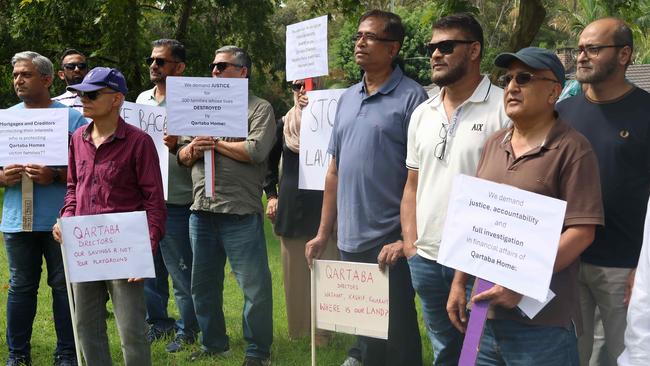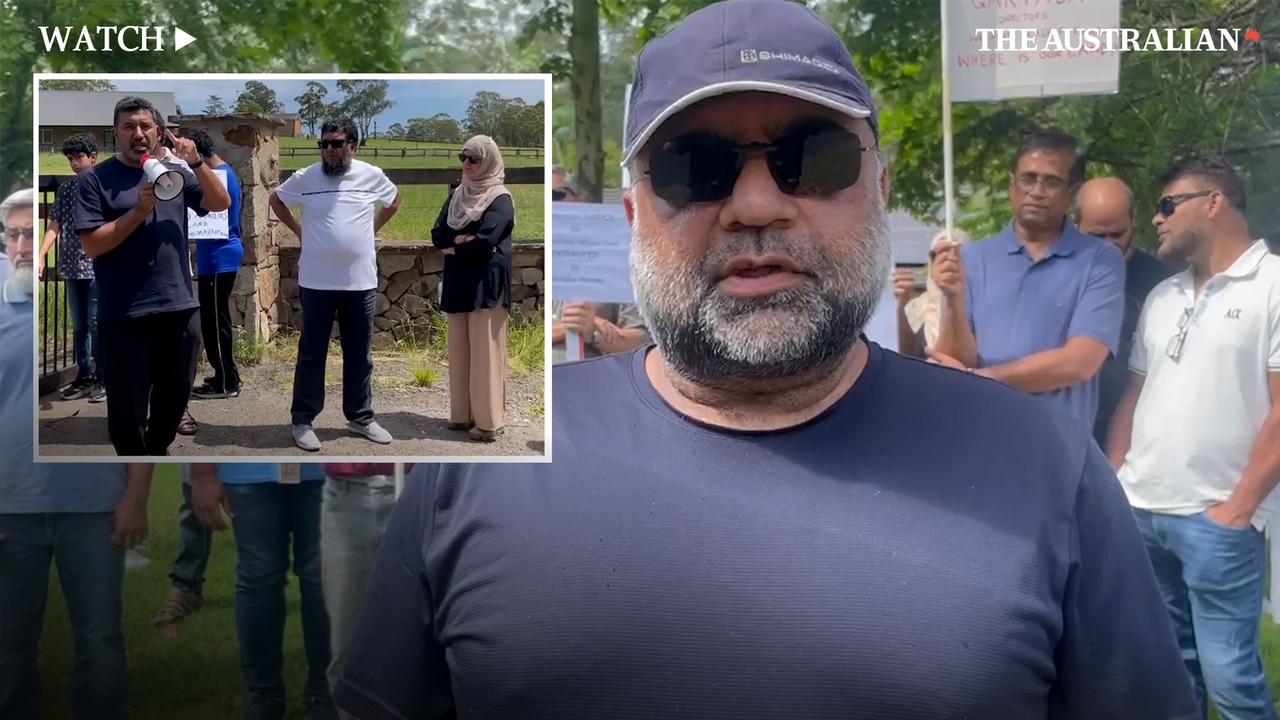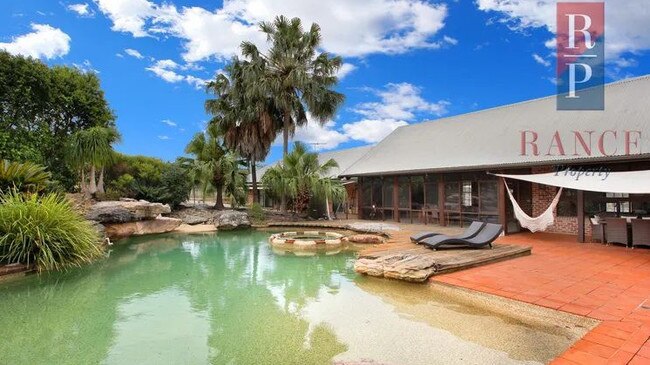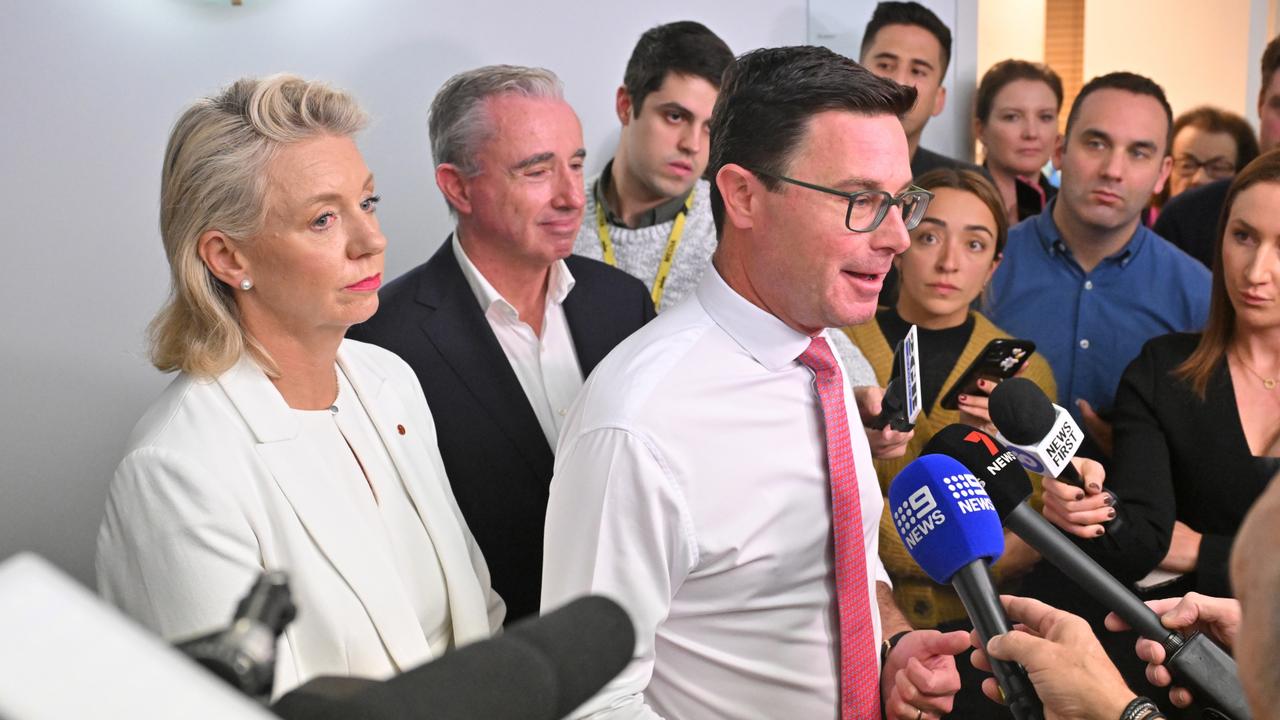Qartaba directors’ life of luxury, property sprawl revealed as victims demand answers
Our investigation reveals the lavish lifestyles of Qartaba’s directors and their sprawl of properties despite leaving hundreds of customers without their life savings after the ‘sharia-compliant’ scheme collapsed.

The directors of collapsed developer Qartaba homes lived lavish lifestyles with a sprawl of multimillion-dollar luxury properties despite leaving hundreds of customers without their life savings after the “sharia-compliant” scheme collapsed last year.
Run by Wajahat Rana, Khurram Jawaid and Kashif Aziz, Qartaba had spruiked itself as Australia’s “interest-free answer” to the housing market, predominantly targeting customers of South Asian background. It offered sharia-compliant payment options before it collapsed under mountains of debt in October.
More than 50 victims and their families – who have lost hundreds of thousands of dollars and haven’t seen land or properties they bought almost a decade ago – took to the directors’ northwest Sydney homes on Saturday to demand answers.
“People have lost their life savings,” customer Rashid Idris told The Australian outside Mr Jawaid’s home. “It (the investment) was a once-in-a-lifetime chance for us; we are mainly working class people, first-generation immigrants. We gave them our money so we could build something.”
An investigation by The Australian can now reveal the sprawl of farm houses, new builds or investment properties the three directors enjoy, predominantly under their spouses’ names.

According to property records and analysis of the directors’ assets, there are at least 20 properties either leased out or sold last year as the net closed on Qartaba.
There are 11 and 15 properties in the names – or sold since Qartaba’s 2010 establishment – of Mr Rana and Mr Aziz or their spouses, including 14 purchased from Qartaba, or its related entities, and later sold for a significant profit.
An Oakville farm house and a five-bedroom Dural property – the family homes of Mr Rana and Mr Jawaid, the site of Saturday’s protests – are valued at $5m and $4m respectively, while Mr Aziz’s six-bedroom Kenthurst house is estimated at $3.4m.
Sources with knowledge of the situation said Mr Aziz had since rented out that Hills district property and is residing in an “unknown location” with his family.
“We are here to tell you (the directors) that we won’t let you take our money and get away living a lavish lifestyle,” customer Nazim Chaudhry told Saturday’s protest.
“We won’t forgive you … you have to answer us, you can’t live your lavish lifestyle with our money. We won’t forget and we won’t forgive.”
Two of the directors have upgraded to Range Rovers in recent years while sending their children to prestigious private schools.
Neither Qartaba nor Mr Aziz responded to requests for comments, while Mr Rana and Mr Jawaid were away from their homes on Saturday to avoid facing the distraught customers.
“You took all our money and now you’re hiding,” Mr Chaudhry said, who paid $145,000 for land and development at Qartaba’s Mount Cottrell project.
Fakhar Masud invested his life savings with Qartaba so he could build a home with more space for his disabled son, but is now unlikely to see a cent back. “I worked as a cab driver during the day and security at night … (saving) money like a mad man to pay these guys,” Mr Masud said, adding that gazing upon Mr Rana’s luxurious home made him feel “sick”.
“I have no place (of my own) to look at.”
Liquidator Worrells blamed “poor financial management, excessive reliance on over-borrowing, a lack of accurate financial information, and too many projects” for the unravelling of the scheme, which owes upwards of $200m to big lenders.
While noting Covid-induced impacts and NSW’s slow development approval process, the liquidator said Qartaba based costs on “overly optimistic timelines”, took on too many loans and debt that was not matched with enough finished projects to avoid insolvency.

The liquidator said the myriad entities had a “complex structure”, with significant dealings between related companies. The final financial situation – and what was salvageable for customers – would not be clear for “some time” due to a “lack of company books and records”.
Worrells also said Qartaba’s directors likely breached at least five sections of the Corporations Act – including allegedly trading while insolvent – but any insolvent trading claim would fail given the directors would unlikely “have the capacity to cover” it.
The Australian Securities & Investments Commission is investigating Qartaba’s collapse.
Qartaba would buy land before selling it to customers off the plan per lot. Customers would pay a deposit for the land, before then paying monthly development costs or land payments of about $4000, which would be interest-free.
Customers completed their payments years ago, but their lots were never developed nor transferred into their name.






